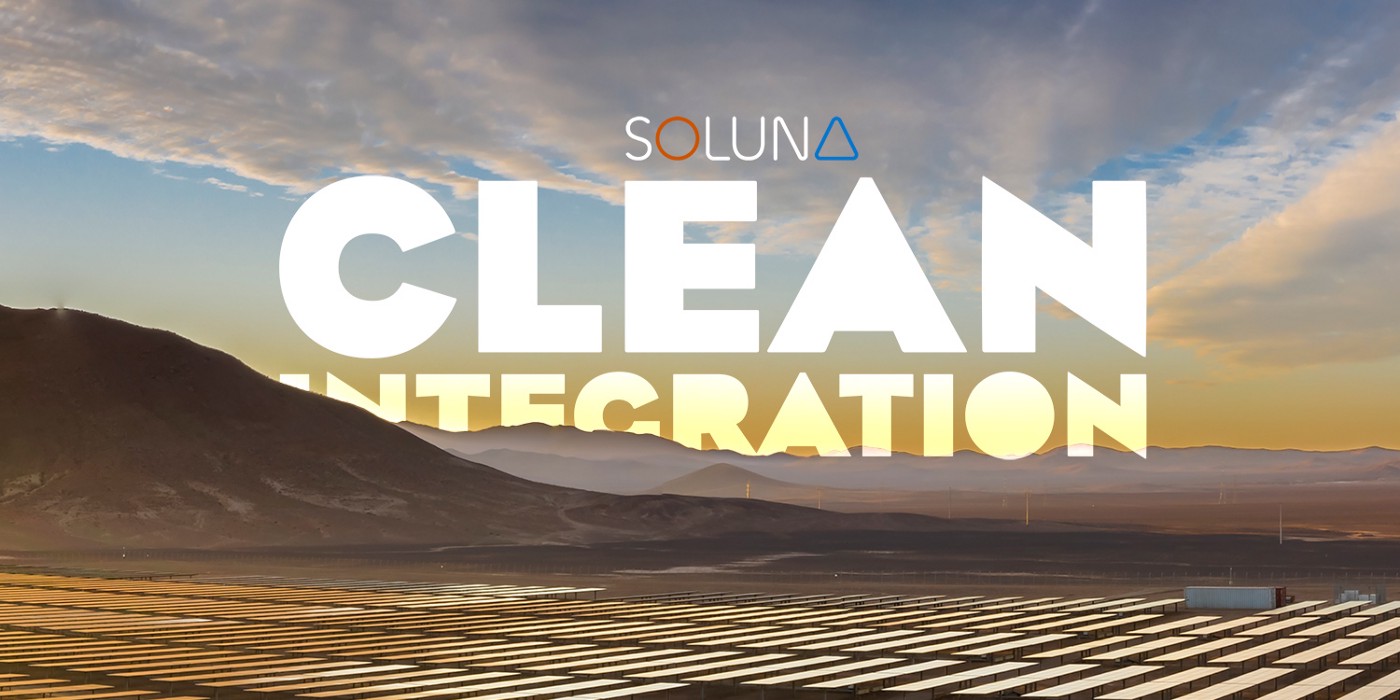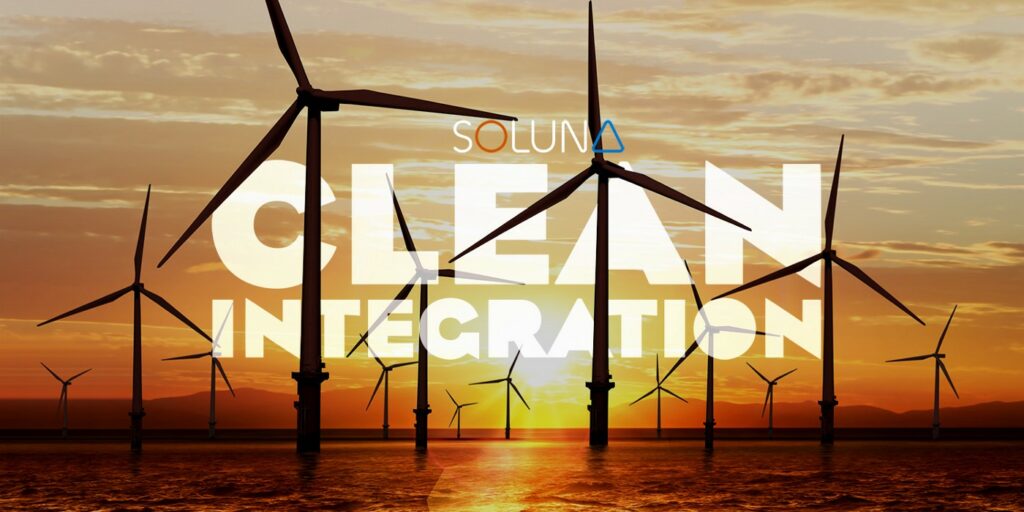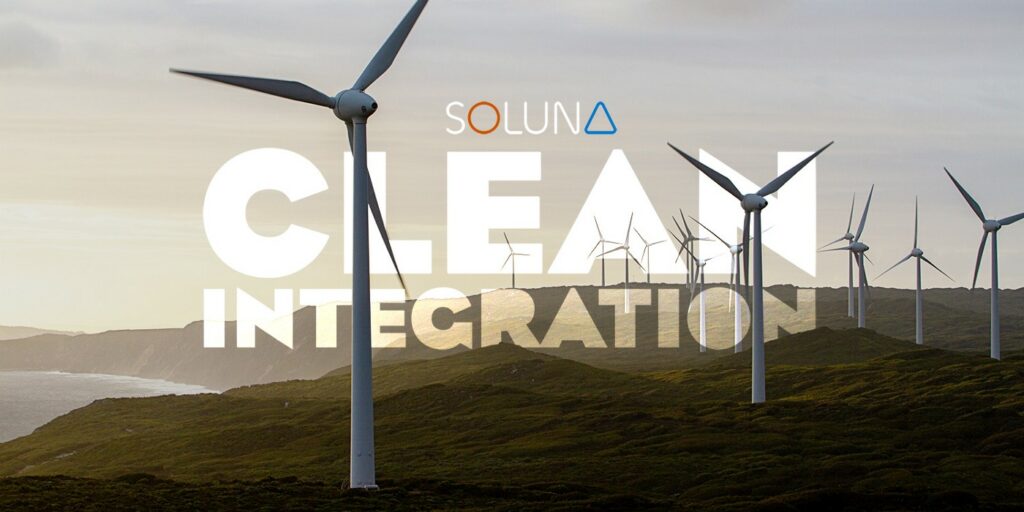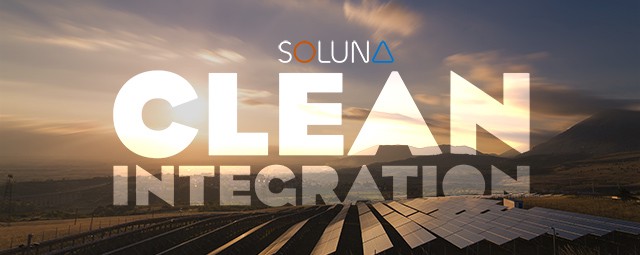Listen now on Apple | Spotify | SimpleCast
Bitcoin, crypto, and batchable computing. Could they be the keys to scaling the renewables sector?
Soluna Computing CEO John Belizaire sits Rene Ramirez, founder of Fino Advisors LLC. Through Fino, Rene has worked on a variety of projects involving the North American power markets, and renewable energy, along with more traditional infrastructure projects. Prior to Fino Advisors, Rene founded Torofino Trading, LLC in 2009, a power trading hedge fund focused on trading short- and long-term futures contracts.
Together, John and Rene discuss the emerging crypto and clean energy space, the current and future landscapes of institutional investment in crypto and renewable energy, and what we can expect as crypto and renewables gain mass adoption in tandem.
[1:33] How did you get into the energy business?
Rene Ramirez: Oh man, it was right out of college. I went right into asset valuation for a utility. This was during the Enron times, and just so happened, there was a lady…and I’m just going to give her a shout-out. I’m not sure if she’s even around anymore in this space, but her name is Cynthia Dyer, and she’s like, “You know what? I like you.” She got me a job, and we work in a place called Entergy, and I look around, and everyone I see has MBAs from these really fancy schools, and here I am, public school guy, you know? Decent grades, but not amazing, and I’m like, “You know what? I’m definitely swimming with the big fish here,” and that was my first job, and I started trading a year after, and I’ve been trading for 20 years now, I guess.
John Belizaire: And what made you decide to break away and start your own firm?
Rene Ramirez: I wasn’t satisfied with the bonus from my last company. It was a long time ago, and there were a lot of things going on in 2009, as you can imagine with the financial crisis. I made good money, and I’m like, “You know what? This bonus ain’t good enough,” and I decided I could do this on my own and started Torofino Trading. People said, “Where’d you come up with Torofino?” I’m like, “Well, it means fine bull.” I just put the two words together, and it had a good ring to it.
John Belizaire: What would you say, how would you describe your experience in the trading business? What would be the headline, if you were talking to a new young professional? How would you describe it for them?
[3:01] How would you describe the trading business to a new young professional coming into the space?
Rene Ramirez: I think dealing with the highest and lows, and dealing with adversity, but at the same time, taking success well. I think that’s always something people don’t understand, is like, hey, when things go great, take it in stride, and you’re going to have tough times, you’re going to have good times. But the big thing that you always want to think about trading, and I tell this to everyone that’s young, the most important thing you should learn is managing risk, and stopping out isn’t a failure.
Stopping out saves a lot of careers. I’ve traded for 20 years. You know what? If I don’t like the risk profile anymore, or at the end of the day I lost more than I’d like to in this specific trade, it’s time to move on and live to fight another day. I think if anyone ever gets into the space of trading in general, it could be equities or commodities, it’s about understanding the risk, managing that risk, and understanding what the parameters should be for any kind of risk that you take.
John Belizaire: That’s great. I’d like to start exploring the crypto investing landscape. I’d love to hear how you first became interested in it. Was it a particular deal or opportunity you got involved in? And what do you see are the opportunities right now? Like, what does crypto investing really look like right now to you?
[4:28] How did you get involved in crypto, and what are your thoughts on the current landscape?
Rene Ramirez: Yeah, no, that’s a great question. That’s a fun question too. Back in 2018, I got a phone call from a friend that said, “Hey, would you mind speaking to this guy? He’s looking for some power.” He calls me up, and he says, “Hey, I’m looking for 250 megawatts around the clock for 10 years, and we have capital behind us.” I looked around, and I’m like, “Holy crap. What do you need that much power for?” They were like, “It’s for a crypto mine,” and I’m like, “Crypto?” Honestly, I had seen Bitcoin go up in 2017 and crash down, hadn’t thought much about it, but I went ahead and saw where BTC was trading, and I’m like, “Well, if people are putting that much capital into it, it might be worth dipping my toe in it.”
I bought my first Bitcoin right after that phone call and have grown ever since, and I’ve been watching, not just the trading aspect, but watching the industry grow and develop, and seeing what kind of hurdles they have, and where my space can merge with theirs, and get an idea of what’s the best way to do things. I think that’s a big part. You mentioned capital and the investing space. I think we’re only now at the front end of big North American capital getting involved. And as they understand the risk more and understand the asset class more, they understand the structure and the value of it, either directly with BTC or what mining can be to the grid or to other aspects, people are getting more comfortable.
[6:01] Are you also in the flow of what’s happening in the renewable investing space?
Rene Ramirez: Absolutely, yeah. The renewables space is interesting right now. I’ll tell you when wind first came on, I guess 15 years ago, I used to get annoyed, because I was like, “Man, these guys are getting production tax credits. They’re making the power pricing difficult to ascertain because they’re getting paid to run when they shouldn’t be running.”
But I did see the value, and I see why the transition was important, and you see it mature, and obviously, we went through a stretch let’s say three to five years ago where you could have bought solar power in West Texas for 23 bucks a megawatt-hour, and for 10-, 12-year contracts.
Now, as you start seeing supply chain constraints, you start seeing other issues, with inflation, the cost of renewable generation is increasing, and you start finding out that many of these players or developers would price out a project with the anticipation of their raw materials, such as the solar farm, the solar panels, or the wind turbines to go down in price, and they find themselves in a pickle when inflation kicked in and now all of a sudden that PPA price that they were trying to do isn’t quite economic for them anymore.
John Belizaire: Right. And that’s exactly what we see out there, and that can put projects in a pickle.
Just within those two landscapes, there’s a lot going on out there. I mean, the president (we’re recording in 2022) has his hands full with managing the Ukraine event, but he’s also looking at the maturity of the entire digital asset space.
He [Biden] put out this executive order recently, and it is pretty clear that he believes, and his team believes, that digital assets are going to be around, and he wants to really understand them, and get the government’s perspective on how it can help improve it to some extent, and learn where there might be challenges from a security standpoint and energy standpoint. I mean, what do you think that means from an institutional investment standpoint? What does it mean when a government starts to look at a new technological innovation? Is that good for investing in the crypto space, or what’s your take on it?
[8:45] What are the implications of the government starting to look at a new technological innovation?
Rene Ramirez: I think it goes without saying, it’s great. I mean, I think we all love decentralization, and we want minimal interference by other parties, but playing fields have to be drawn out so everyone understands the rules and can plan accordingly, and that’s what the government does by coming in and saying: you know what, these are the basic rules.
Now everyone can invest with a clearer mind, and they’re not afraid something’s coming out of left field that’ll totally kill any large investment they’ve made in the space. You know, I’m all for regulation. I think we need responsible regulation. I think that’s always going to be critical, and working with the right policymakers, to make sure that regulation does make sense for what we’re trying to do in the larger scheme of crypto and decentralization. But at the same time, I think it’s a needed and useful part of the maturation of crypto.
John Belizaire: Yeah, I mean, I think that I would tend to agree that government involvement is not always a bad thing. It actually lends itself to legitimizing an industry to some extent, and that could lead to acceleration, as long as it’s not overbearing and taking away from that innovation. Wouldn’t you say?
[10:00] Would you agree that government involvement isn’t always a bad thing?
Rene Ramirez: I think you’re totally right, and I think something that people got to think of is this has kind of happened throughout our history, you know? If you look at the infrastructure bills during the TVA time, in the 1930s.
And to build all the highways that were done in the 1950s? I think the reality is when you look at crypto, it’s becoming very clear this is becoming infrastructure, and developing the infrastructure of the country, be it a road or a bridge, is important, and the same thing for the blockchain space. Let’s build that infrastructure, because it’s for the common good, and it’s going to add different pathways for people to be successful in whatever they may pursue.
John Belizaire: I can definitely agree with that. It’s going to be interesting to see. There’s been an RFI put out. There’s now lots of information being collected as a result of the executive order, so it’ll be interesting to see how that all plays out, and we plan to respond to it and help the education process, you know?
Rene Ramirez: Absolutely. We need smart guys telling the politicians what to do.
John Belizaire: Yeah, exactly. I’d love to get your perspective on the future. I’m new to the energy space, I’ve been in this space for about four years, and it feels like there’s a tremendous amount of change happening, right? You have lots of capital coming in. There’s retiring of legacy fuel-based resources, lots of generation development, and different hedging structures. It’s crazy, crypto coming in. I’d love to just pick your brain on what the future holds. I always like to start with what the biggest challenges are when you look at some of these new changes. We’ve been talking about crypto and clean energy, and the nexus of those two. What do you think are the challenges with bringing those two worlds together?
[12:04] What do you think are the challenges with bringing the crypto and clean energy communities together?
Rene Ramirez: I think the challenge is always having interests aligned. I think that’s the big part, and if you look at the different types of generation coming on, you will need all these, all different types of mouse traps. You’re going to need hydrogen. You’re going to need wind. You’re going to need solar. You need batteries. You need something we don’t know yet, right? Obviously SMB, with small nuclear reactors. There are a lot of different mouse traps that will all be needed, but for this to happen, you need to have long-term PPAs to secure the risk capital.
So I think that’s always going to be the biggest issue. How can you bring this generation online, economically, and in a safe way in terms of an investment, so people aren’t having to spend 200, $300 million at a facility without a long-term PPA, and the same thing that happens with crypto? How can I get five, 10 years of power at a cheap price, or a price that works for me in terms of risk-reward, and have it available reasonably priced with a PPA, in terms of an LC or any kind of security to give the producer some comfort?
John Belizaire: There seems to be lots of talk around green hydrogen and hydrogen as a way to also absorb some of these pockets of stranded energy, also just greening hydrogen, in general, could have significant effects on the global economy.
[13:30] What’s your take on developing large-scale hydrogen power in North America?
Rene Ramirez: As I said, I think it’s another mouse trap, and I think it could happen. It’d be a really big impact on the country. You have green hydrogen. There’s obviously a huge need for all kinds of hydrogens, green, blue, pink, you name the color.
John Belizaire: Right. Yeah, by the way, I didn’t know there were all these colors.
Rene Ramirez: Oh, there’s turquoise. You could go on and on with the colors. You know, obviously, green hydrogen, with stranded wind and solar projects, has value, has a ton of value. It’s actually very expensive, and there’s the obvious question of I’m going to make electricity to make electricity, which is kind of a difficult story to swallow, and not to mention, you’ve got to have water, and there are all sorts of different issues with that. I’m really excited about blue hydrogen. I think blue hydrogen has a big space.
You know, what’s critical is not letting the CO2 go up in the atmosphere. If it never goes up in the atmosphere, you should be all about blue hydrogen, because it’s going to be a lot cheaper than green. You can scale at different locations. But we end up seeing hydrogen as ammonia as something people don’t talk about enough. Ammonia is going to have a huge impact, and I think it’s only coming out now, but ammonia is easier to transfer and works great for shipping. As they start making more of these ammonia facilities, and if they could make it more modular, it would really help to separate how that fuel source can be used.
John Belizaire: What about the challenges with bringing new technology to an industry that’s been around for a long time? I mean, the energy industry is quite large, global in nature, but very small. I mean, it’s very incumbent to some extent, but how do you displace it? How do you convince people to do things that they’ve never thought of doing before? I mean, disrupting a space, thinking about it differently. How do you approach it, and how would you advise folks that are like ourselves, that are going to the industry and saying, “Hey, we’d like to do something you probably didn’t think would be worth it”?
[15:36] What are the primary challenges with bringing new technology to an industry that’s been around for a long time?
Rene Ramirez: The thing I love to say is there’s more money in change than not change, and people are used to that, especially big utilities or big energy producers, “Hey, you know what? I’ve done it for 100 years, and it makes money every year. I will make my return.” But what ends up happening is it becomes just a battle of the cost of capital. “My cost of capital is cheaper than yours. That means I’m better. I’m going to make more money. I won this race.”
It becomes just a financial play. Now, with new technologies coming on, it’s about trying to get them to align with the possibilities with the security of what they’re used to. If you can really show them a great investment case for new technology, with a limited amount of risk, they will be about it. They may be slow, but they’ll definitely be interested, and I think that’s the challenge for everyone in this space, is hey, this energy transition doesn’t have to be painful. It just has to be thought out well.
John Belizaire: We’re going to our lightning round here. Just want to hit you with a few interesting questions that we always ask our guests, Rene. First, where do you get your news?
Rene Ramirez: You know, I try to limit the amount of news I take in. I hate to say that, but it’s so true. I think people watch way too much news, and I think everyone should be informed, but I think for the average person, a nice 30-minute news broadcast will do people wonders. It doesn’t get you worked up by watching the news 24 hours a day, and you actually focus on events rather than opinion.
John Belizaire: I’m with you on that, Rene. I actually consciously try not to watch the news or seek it out. Believe it or not, sometimes I’ll be at the dinner table, and my wife will say, “What do you think about this?” And I’m like, “What happened?”
Rene Ramirez: Well you know, when we were kids, you’d get home, and there’d be cartoons from 3:30 to 4:00, and then you’d be mad that your mom, or dad, or whoever wanted to watch the news for 30 minutes, and that was the extent of it. I think if we went further, that would be a better country and a better world, because not everyone would be worked up, angry at each other, arguing about points that most people don’t know anything about, you know? I get a kick when I hear some talking head on the news at some point or another talk about energy, and I’m like, “God, you don’t know what you’re talking about,” but all it does is make people angry, and I think at a time in this world, I think with what’s happening in Ukraine, I think we could stand to just learn about facts, understand facts, make a decision on how you believe it, but then move on with life and try to become better neighbors with each other.
[18:36] What’s your prediction for 2022?
Rene Ramirez: Well, I would say this. We just mentioned Ukraine. I think there’s going to be obviously a big influx in fossil fuel production, and you know what? I think the time is right. I think it has to be done. I think it’s one of those things. Everybody wants to transition, but it has to be done smartly, and where we are in the situation right now, with Russia being a big producer, I think it’s important that we have energy independence.
At the same time, what I hope for and I expect is that we don’t keep our eye off of the ESG story, because it is important. The transition has to continue, you know? Maybe it follows a different trajectory, but that’s going to be okay, as long as the trajectory still goes to an energy transition that makes the planet cleaner and more habitable for generations to come.
[19:26] And last, what is your one-line response when you hear the word “crypto”?
Rene Ramirez: You know, I think it’s reimagining value and the value of everything. For example, this is my first podcast ever, right? If it’s a great podcast, maybe people will want to say, “Hey, I own the first podcast with Rene, because he was good,” or, “This was terrible. This was the worst podcast ever,” and that has value. But when you peek into other aspects of people’s carbon footprints, to stick with the ESG story, which is very important to me. That has value. People’s ideas, conversations, all that has value, and how you define that value is what crypto is.
John Belizaire: This has been great, Rene. I really appreciate the introduction to you and your business, and having our podcast be the first podcast that you start what I’m sure will be a series of conversations on pods about what you’re doing and how you’re helping to reshape the renewable energy space. So thanks for taking the time, and I really appreciate that.
Rene Ramirez: Thank you, John. This has been a lot of fun. I hope it was helpful to some people.




